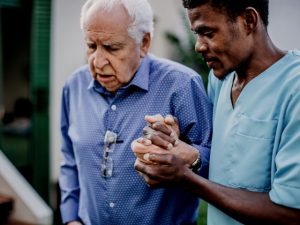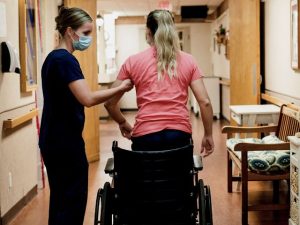Assessment of a Medically Fragile Patient
Patients with medical fragility can have various critical impairments such as weight loss, weakness, exhaustion, decreased gait and/or speed, decreased physical activity, more dependence with dressing, restricted walking, and incontinence.
Declining health conditions, self-perceived physical limitations, and cognitive decline are all associated with negative outcomes related to frailty.
The nurse assesses the patient carefully in each of the above areas and gives a score based on the Frailty Indicators Scale. The caregiver also has an important role in the assessment as they can typically offer a great amount of valid information regarding the patient’s deterioration in any of these areas as they may have noticed the regression.
The detailed assessment offered by both the family/caregiver and the nurse is imperative in formulating a plan of care to assist both the family/caregiver and the patient.









